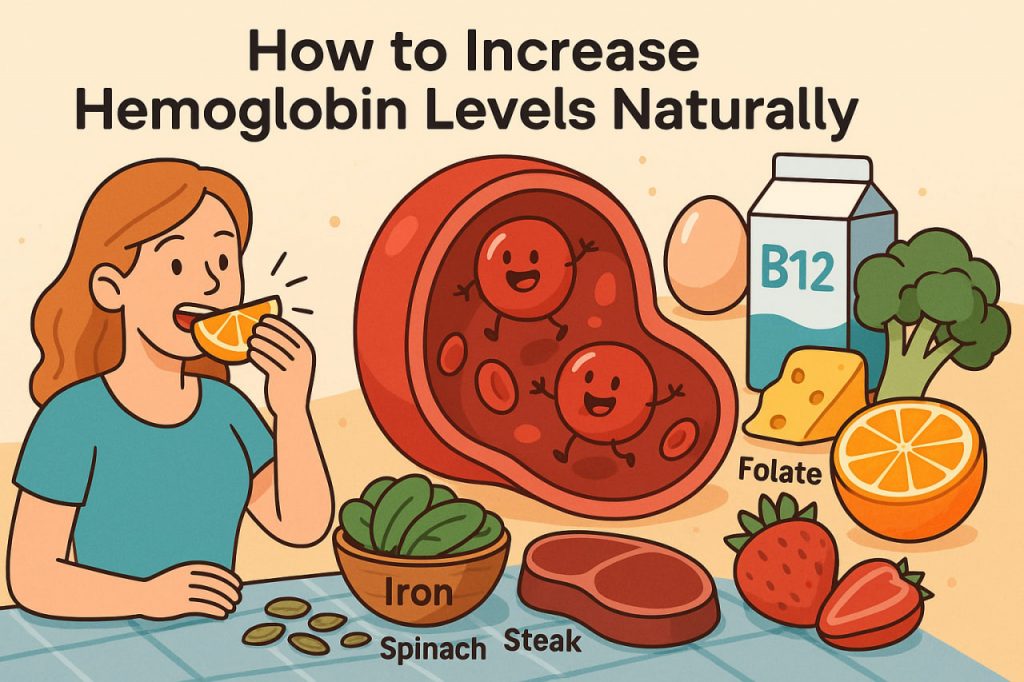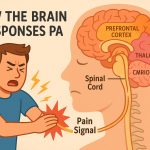Hemoglobin is an essential protein in red blood cells that transports oxygen from the lungs to every tissue in the body. Low hemoglobin levels can lead to anemia, causing fatigue, dizziness, shortness of breath, and poor concentration. Maintaining optimal hemoglobin is vital for energy production, immune function, and overall health. While severe cases may require medical treatment, many mild or moderate deficiencies can be corrected through dietary changes, lifestyle adjustments, and monitoring of underlying conditions. Increasing hemoglobin naturally is a safe and effective way to support your body’s oxygen-carrying capacity.
Iron-Rich Foods and Nutrient Synergy
Iron is a central component of hemoglobin. To raise its levels, prioritize consumption of iron-rich foods such as red meat, liver, chicken, legumes, lentils, tofu, spinach, and pumpkin seeds. However, not all iron is absorbed equally. Heme iron (from animal sources) is absorbed more efficiently than non-heme iron (from plants). To boost absorption, combine iron-rich foods with vitamin C sources like citrus, bell peppers, or strawberries. Avoid drinking tea or coffee with meals, as tannins and polyphenols can inhibit iron uptake. Balanced nutrition enhances both absorption and long-term maintenance of hemoglobin.
Folate and Vitamin B12: Support for Red Blood Cell Production
Iron alone is not enough. Folate (vitamin B9) and vitamin B12 are crucial for red blood cell formation. A deficiency in either can lead to megaloblastic anemia, where cells grow abnormally large and dysfunctional. Include leafy greens, eggs, beans, citrus fruits, and whole grains for folate. For B12, eat meat, fish, dairy, and fortified cereals. Vegetarians and older adults are particularly vulnerable to B12 deficiency and may require supplements. Ensuring all these nutrients are present in the diet helps the body not only make more red blood cells, but also make them effectively.
Lifestyle and Absorption Factors
Several lifestyle habits affect how efficiently the body absorbs and uses iron and related nutrients. Smoking, alcohol intake, and chronic stress can all interfere with nutrient metabolism. Regular physical activity improves circulation and stimulates erythropoiesis (red blood cell production). Getting adequate sleep supports hormone balance, including erythropoietin—the hormone that signals red blood cell production in bone marrow. It’s also essential to manage chronic illnesses like kidney disease, thyroid dysfunction, or gastrointestinal issues, as they can impair nutrient absorption and lower hemoglobin. Natural strategies work best when the whole system is supported.
Glossary
- Hemoglobin – a protein in red blood cells that carries oxygen from the lungs to the body.
- Anemia – a condition marked by low red blood cell count or low hemoglobin.
- Heme iron – iron from animal sources, easily absorbed by the body.
- Non-heme iron – plant-based iron, less efficiently absorbed.
- Folate (vitamin B9) – a B vitamin important for red blood cell formation.
- Erythropoiesis – the process of producing red blood cells in the bone marrow.


